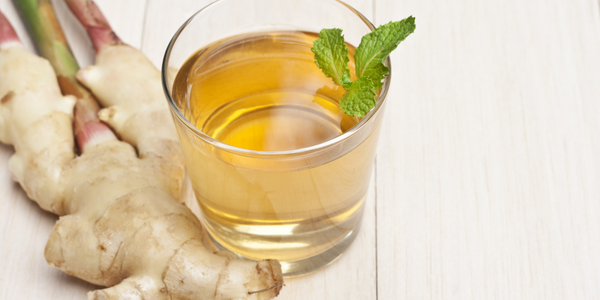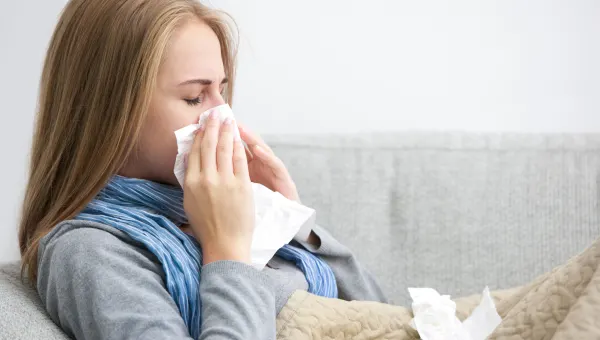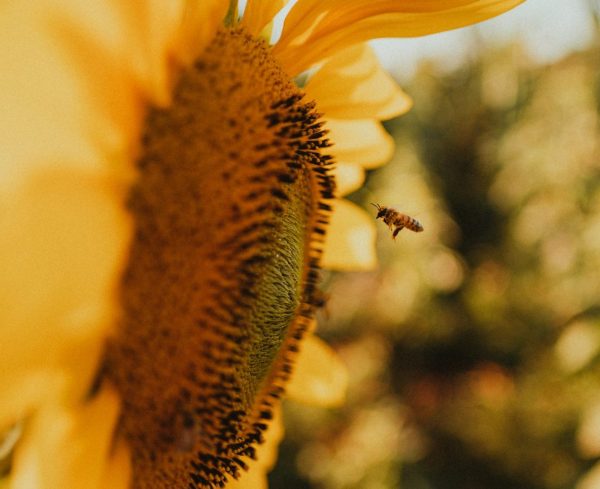Menu
Ginger Green Tea with Honey Recipe
- March 4, 2023
- 9:24 am

Halt Inflammation, With Anti-Inflammatory Ginger Green Tea & Honey

Medicinal Benefits of Green Tea
- High in antioxidants – helps to fight free radicals
- Brightens the appearance of skin
- Anti-inflammatory- reduces oxidative stress and pain
- Anti-cancer – support immune function, promotes apoptosis (damaged cell death) and inhibits growth of new blood vessels that feed cancer
- Anti-allergenic – supports appropriate antibody balance in the body
- Can calm an anxious mind due to L-Theanine – an amino acid which crosses the blood-brain barrier and promotes GABA (a relaxing neurotransmitter)
- Lowers cardiovascular related mortality
- Can help with metabolic fitness, including weight loss and lowering the risks for developing Type 2 Diabetes
- Lowers risk of dementia
Medicinal Benefits of Ginger
- Ginger (Zingiber officinale) (root) has been used for thousands of years in China for medicinal purposes (Murray, 2013). Its therapeutic actions include
- High in antioxidants – helps to fight free radicals
- Anti-inflammatory- reduces oxidative stress and pain
- Anti-cancer – support immune function, promotes apoptosis (damaged cell death) and inhibits growth of new blood vessels that feed cancer
- Anti-allergenic – supports appropriate antibody balance in the body
- Supports the gastrointestinal system
- Reduces nausea, vomiting, bowel spasms
- Supports bile, liver and bowel
- Antibiotic- increases immune system
Ginger Green Tea with Honey Recipe

Ginger Green Tea with Raw Honey
by Lauren Hayen
Recipe
Total Time: 5-10 minutes
Yields 1-2 servings
Ingredients:
- 1 tsp green tea (organic raw leaves)
- 2 Tbsp ginger root (organic raw)
- ½ tsp raw honey
- 16 oz filtered water
Directions:
- In a blender, pulverize ginger and water
- Add ginger & water to a pot on medium heat
- Heat to a low simmer, lower heat and add green tea leaves
- Steep on low for 5-10 min
- Strain into cup and add honey
- Yields 1-2 servings
References
Al-Nahain, A., Jahan, R., & Rahmatullah, M. (2014). Zingiber officinale: A potential Plant against Rheumatoid Arthritis. [Abstract]. Arthritis. doi:10.1155/2014/159089
Banasik, J. (2013). Inflammation and immunity. In Pathophysiology (5th, pp. 157-193). St. Louis, Missouri: Elsevier Saunders.
Bernard, M., Furlong, S. J., Power Coombs, M. R., & Hoskin, D. W. (2015). Differential Inhibition of T Lymphocyte Proliferation and Cytokine Synthesis by [6]-Gingerol, [8]-Gingerol, and [10]-Gingerol. [Abstract]. Phytotherapy Research. doi:10.1002/ptr.5414
He, Y., Yue, Y., Zheng, X., Zhang, K., Chen, S., & Du, Z. (2015). Curcumin, inflammation, and chronic diseases: how are they linked? Molecules, 9183-213. doi:10.3390/molecules20059183
Hsiang, C. Y., Cheng, H. M., Lo, H. Y., Li, C. C., Chou, P. C., Lee, Y. C., & Ho, T. Y. (2015). Ginger and Zingerone ameliorate lipopolysaccharide-induced acute systemic inflammation in Mice, assessed by nuclear factor-?B bioluminescent imaging. [Abstract]. Journal of Agricultural and Food Chemistry, 63, 6051-8. doi:10.1021/acs.jafc.5b01801
Murray, M. T. (2013). Zingiber officinale (Ginger). In Tectbook of Natural Medicine (4th ed., pp. 1147-1153). St. Louis, Missouri: Elsevier, Churchill Livingstone.
Oxidative stress. (2015, October 31). In Wikipedia. Retrieved November 3, 2015, from Wikepedia Foundation Inc website: https://en.wikipedia.org/wiki/Oxidative_stress
Peterson, D. (2015). Essential oil of Turmeric. In http//www.achs.edu. Retrieved November 4, 2015, from American College of Healthcare Sciences website: http://myachsclass.org/re/DotNextLaunch.asp?courseid=11632021&userid
Shieh, Y. H., Huang, H. M., Wang, C. C., Lee, C. C., Fan, C. K., & Lee, Y. L. (2015). Zerumbone enhances the Th1 response and ameliorates ovalbumin-induced Th2 responses and airway inflammation in mice. [Abstract]. International Immunopharmacology, 383-91. doi:10.1016/j.intimp.2014.12.027
Tahir, A. A., Sani, N. F., Murad, N. A., Makpol, S., Ngah, W. Z., & Yusof, Y. A. (2015). Combined ginger extract & Gelam honey modulate Ras/ERK and P13K/AKT pathway genes in colon cancer HT 29 cells. Nutrition Journal. doi:10.1186/s12937-015-0015-2.
Wang, S., Zhang, C., Yang, G., & Yang, Y. (2014). Biological properties of 6-gingerol: a brief review. Natural Product Communications, 1027-30. Abstract retrieved from PMID: 25230520
Share on facebook
Facebook
Share on twitter
Twitter
Share on linkedin
LinkedIn



 by Ohava
by Ohava